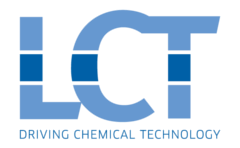Ph.D. researcher: Advanced data analysis and experimentation for fouling assessment in steam cracking reactors
Aim
Develop and apply advanced data analysis techniques on existing and novel fouling datasets to obtain fundamental understanding of key parameters that determine feedstock fouling.
Context
Fouling is a general term used in the process industry to indicate unwanted depositions of materials at certain, typically well-defined locations. There are numerous parameters that affect fouling such as composition related properties (asphaltenes, metals, material, etc), process conditions (flow rates, temperature, pressure, etc.) and combinations thereof. Advanced characterization techniques such as comprehensive LC and GC are interesting but are time consuming, in combination with experimental testing. Ideally the information obtained from a limited number of well-defined tests (e.g. ASTM tests) is sufficient to provide guidelines for feedstock selection and fouling assessment.
Program
Liquid feedstocks are predominantly used for European steam crackers. To be competitive with other producers a low priced hydrocarbon source is needed. However, not every liquid feedstock (hydrocarbon source) is suitable for cracking. Selecting the wrong feedstock can cause serious fouling issues in the steam cracking furnaces or further downstream in the plant. Fouling in the steam cracking furnaces is strongly influenced by the physical and chemical properties of the feedstock, but some parameters used to estimate the risk of fouling are not yet fully understood. Furthermore, the relative importance of these parameters as well as their interactions is still a matter of debate. Gaining better understanding into the fouling behavior can help SABIC more accurately predicting the behavior of potentially interesting feedstocks.
The challenge of this project is to gain a deeper, fundamental understanding of parameters that influence fouling and to develop analytical, statistical or mathematical measures and methods that can be better used to estimate the fouling risk of feedstocks and make a better differentiation among them.
To achieve this goal, you will start with a literature study to understand steam cracking technology and parameters influencing fouling. Moreover, you need to develop a fundamental understanding of the methods commonly used for fouling evaluation. The acquired knowledge combined with lab experiments and advanced analytical and/or statistical techniques will provide insights in the fundamentals of fouling mechanisms. Based on these fundamentals, you will develop new and more accurate techniques to predict fouling in a steam cracking furnace.
